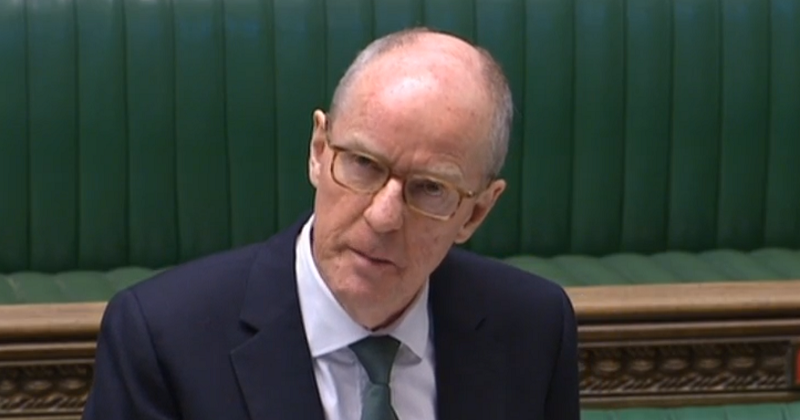Vaccines for 12 to 15-year-olds will be administered in schools if their use for that age group is given the go-ahead, Nick Gibb has confirmed.
But the government believes schools will not need additional resources should vaccinations of younger teenagers go ahead, though NHS capacity would be needed.
The schools minister confirmed today that government intends to use the School Age Immunisation Service to issue vaccines to 12 to 15-year-olds in schools if they are approved by the chief medical officer.
He said this would be the “swiftest and most efficient way” of delivering the vaccination programme to teenagers.
The government’s Joint Committee on Vaccination and Immunisation ruled last week that the margin of benefit was “considered too small” to support advice on a universal programme of vaccination of “otherwise healthy” 12 to 15-year-olds. Teenagers with some underlying health conditions are already able to get the vaccine, as are all 16 to 17-year-olds.
But the committee said the government “may wish to seek further views” from chief medical officers in the four nations of the UK, and ministers have done so.
The JCVI also warned that delivery of a Covid-19 vaccine programme for children and young people was “likely to be disruptive to education in the short term, particularly if school premises are used for vaccination”.
It follows a warning from the committee in August that “considerable additional resource” would be required to “minimise the operational impacts of a Covid-19 vaccine programme on the wider health of children and young people”.
Schools ‘very used’ to immunisation
But Gibb told the Parliamentary committee today that schools were “very used to immunisation programmes”, and that he didn’t “anticipate it being a huge issue for schools” if they are used for vaccinations.
He said health secretary Sajid Javid had “already asked the NHS to prepare” for the programme.
Gibb added: “Those preparations are already in train for the vaccinations to happen and I think we will get through the whole population very swiftly…if the decision is to go ahead with vaccination”.
He pledged that “whatever resources are needed will be met”, but DfE permanent secretary Susan Acland-Hood told MPs that using the School Age Immunisation Service “doesn’t require additional resource from schools”.
“It does require some health resource and we’re looking with the Department of Health [and Social Care] at how they would make sure they could do this at the scale that would be required.”
She pointed to data released last week showing half of 16 and 17-year-olds have already received their first jab following a recommendation made “only made a matter of a few weeks ago”.
“So we’re reasonably confident that this can be done quickly and managed well.”
‘Don’t want schools caught up in family crossfire’
Gibb was also quizzed about conflicting reports from other ministers on how the issue of parental consent will be handled.
Education secretary Gavin Williamson told ITV News in late August that it would be “reassuring” for parents to have a choice over whether children have the vaccine, and it “always has to be based upon parental consent”.
But vaccines minister Nadhim Zahawi told Times Radio on Sunday that teenagers could make a decision if they are “deemed to be able to make a decision that is competent”.
Gibb said today that government would “always seek the consent of parents before vaccinations happen in schools”, but that “in some circumstances, and it is rare, children can consent themselves if they are competent to do so”.
In situations where a parent and child disagree on vaccination, there would be “discussions between the school and the parent in resolving those issues”.
However Geoff Barton, general secretary of the Association of School and College Leaders, has asked the government for clarity to ensure school leaders are not “caught in any crossfire around family disputes”.
Paul Whiteman, general secretary of school leaders’ union NAHT, added school staff are not medical experts and should not be asked to “become involved in complex conversations around topics such as consent”.
Speaking to MPs, Gibb added: “This is an important programme. If a decision is made to proceed with it, we all of us need to just I think be careful with the language we’re using and how much we focus on this issue.
“It is a rare issue in terms of children and parents having a different view about whether they want to have a vaccination programme, and the health professionals who administer vaccination programmes in schools are very experienced at dealing with these issues and I think we should leave the process to them.”



Your thoughts